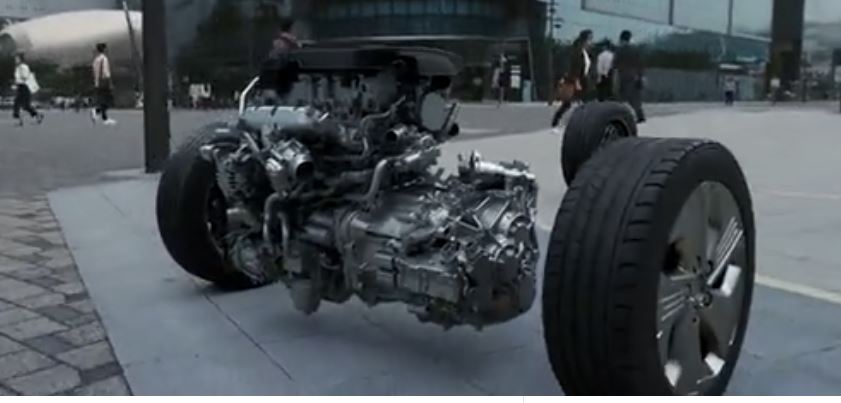- Hyundai Motor Group outlines its new strategy for engine development at its International Powertrain Conference
- ‘Smart Stream’ powertrain technologies will deliver increased efficiency and performance
- New engine line-up and latest fuel cell technology herald new era of Hyundai Motor Group powertrain development
Hyundai Motor Group has outlined its future powertrain development strategy, at its International Powertrain Conference in Korea today.
More than 1,200 engineers and academics from world leading powertrain companies are participating in the two-day event, which features presentations exploring the core theme ‘Knock the Limit of Powertrain Technologies: To Enhance Value for Customers’.
At the conference, Hyundai Motor Group is displaying the first four engines and two transmissions from its forthcoming line-up of new ‘Smart Stream’ powertrains. The Smart Stream technology incorporates number of advanced technologies that will help Hyundai Motor Group meet its long-term global emissions goals.
Developed by Hyundai Motor Group’s award-winning engineers, the Smart Stream powertrains deliver improved fuel economy and reduced exhaust emissions. Beginning with the introduction of 1.6-liter petrol and diesel Smart Stream engines, the technology will eventually be available for all Hyundai Motor Group vehicles. The improvements will enhance petrol and diesel engine efficiency, alongside the development of new plug-in hybrid and electric powertrains, plus the company’s next-generation Fuel Cell Electric Vehicle (FCEV).
Smart Stream: Next generation powertrain
First introduced at the 2017 Frankfurt International Motor Show, the Smart Stream powertrains will allow Hyundai Motor Group to respond to global changes in environmental regulation and meet customer demand for fun-to-drive cars. The word ‘Smart’ implies being smart in design, control, and operation, while ‘Stream’ refers to dynamic movement of mobility.
The next-generation Smart Stream technology optimizes the existing powertrain structure, with engine components reduced in size and weight to enhance fuel efficiency. With the advanced combustion techniques of Smart Stream engines, Hyundai Motor Group aims to maximize thermal efficiency by up to 50% in the future.

















